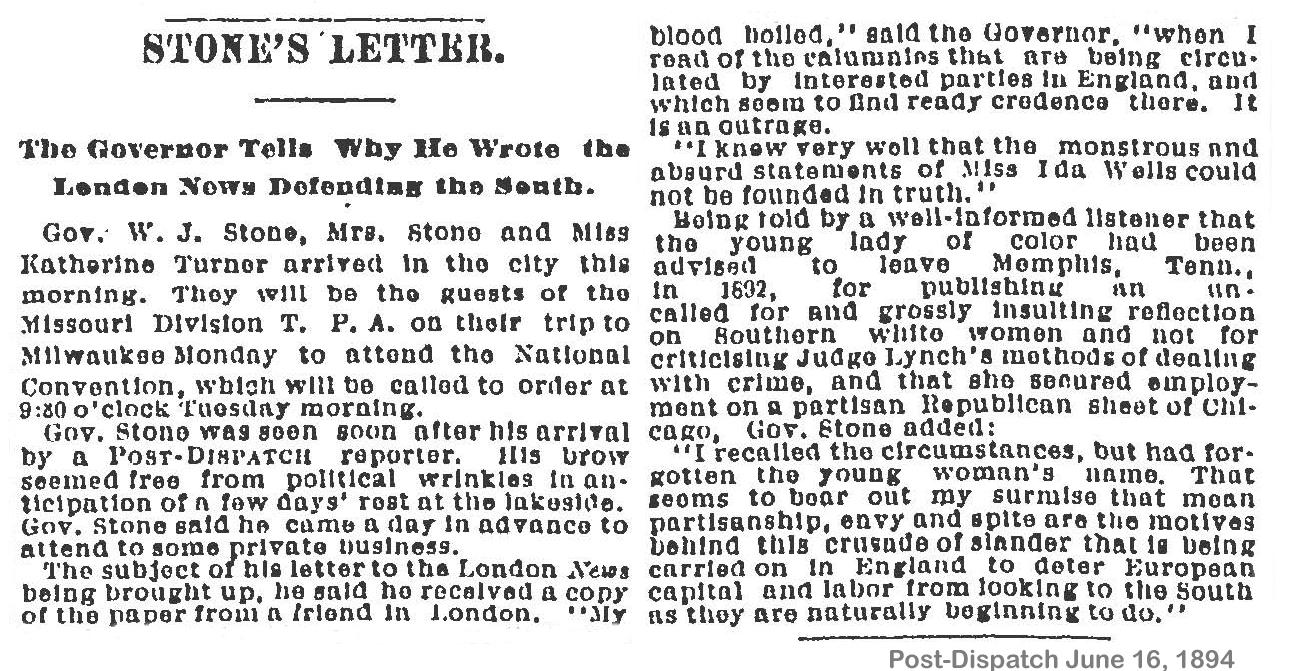
A Black man was arrested in Sikeston, Missouri, taken across the Mississippi River to Bardwell, Kentucky, lynched, burned and mutilated by a mob looking to avenge the murder of two white girls.
C.J. Miller’s story, retold by journalist and activist Ida B. Wells, was published on July 29, 1894 by the St. Louis Post-Dispatch.
From her account: “They told him they would not burn him if he would confess. His reply was that to kill him he would burn on earth only an hour, but if he told a lie he would burn forever.”
The lynching, which took place on July 7, 1893, was covered when it happened, including by the St. Louis papers. The Globe-Democrat’s account on July 8, for example, included graphic details and noted that the father of the murdered girls believed Miller was probably innocent.
A brief Post-Dispatch story, on July 9, 1893, provided a chilling postscript underscoring the moral depravity of the mob:
“After the man was dead, there was no feeling of jubilation manifested. On the contrary, a sort of mental wet blanket seemed to settle down over the crowd. Two out of every three men expressed doubts as to the propriety of their action and said they feared that Miller’s connection to the murder was not fully established.”
Weeks later, papers reported Miller’s widow, Bertie, planned to sue, but it’s unclear whether she did or what became of her. She lived in Springfield, Illinois, at the time.
Wells, however, kept Miller’s story alive in her crusade against lynching.

Ida B. Wells was condemned widely by white supremacists, especially after she took her anti-lynching campaign to England in 1894 in an effort to build support. Among those who denounced her: Missouri Gov. William Joel Stone, who accused her of making “monstrous and absurd” statements that threatened “to deter European capital and labor from looking to the South.”
Generations later, the extent of white violence — its participants and its enablers — has remained largely unexplored, hidden under “a mental wet blanket” of fear and shame. It’s seen as an aberration, a passing moment in our history, instead of a defining part of American life.

(Originally posted July 29, 2019)